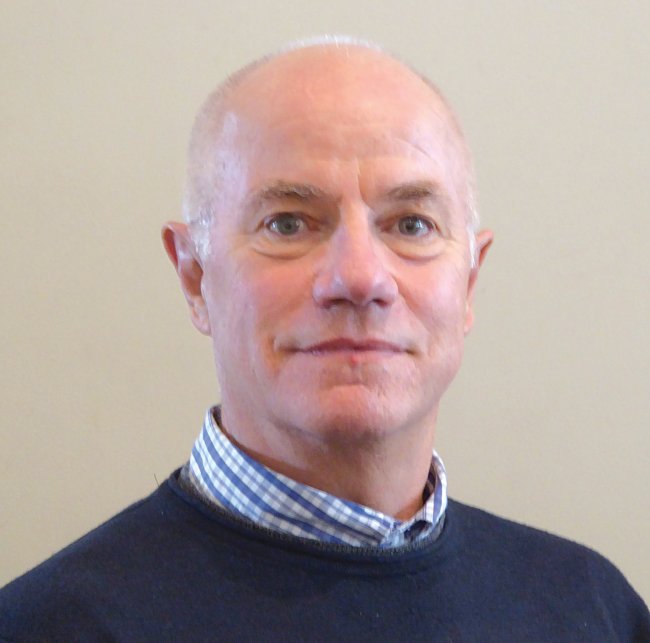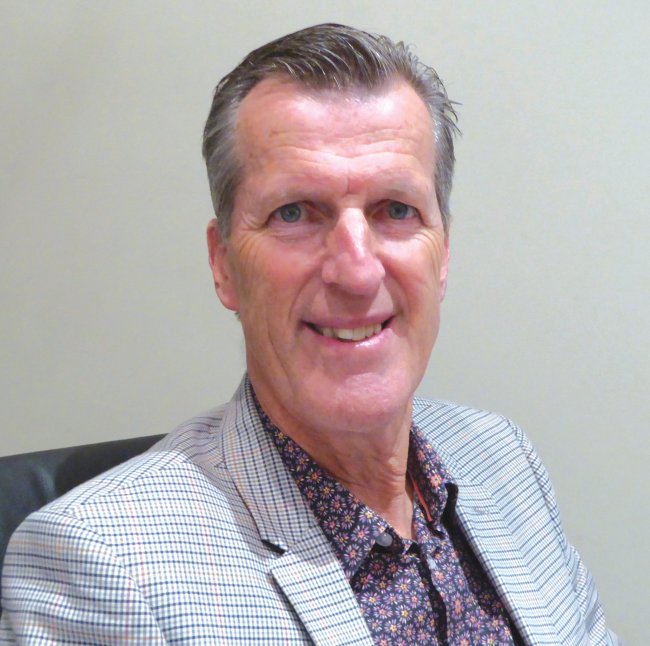Respiratory physician Lutz Beckert considers chronic obstructive pulmonary disease management, including the prevention of COPD, the importance of smoking cessation and pulmonary rehabilitation, and the lifesaving potential of addressing treatable traits. He also discusses the logic of inhaler therapy, moving from single therapy to dual and triple therapy when indicated, as well as other aspects of management
Mt Wellington clinic lands in Green Cross lap - Roger and Dexter’s big move from employers to employees
Mt Wellington clinic lands in Green Cross lap - Roger and Dexter’s big move from employers to employees

We are on our summer break and the editorial office is closed until 17 January. In the meantime, please enjoy our Summer Hiatus series, an eclectic mix from our news and clinical archives and articles from The Conversation throughout the year. This article was first published in the 15 December Summer edition
- Specialist GPs Roger Parr and Dexter Loos bought Mt Wellington Medical Clinic in 1985 and sold it this month.
- The purchaser, Green Cross Health, now has a network of 51 general practices.
- Drs Parr and Loos don’t expect to retire soon but may gradually reduce their hours, and are obliged to stay on at the practice for at least one year.
A 36-year business partnership has come to an end for specialist GPs Roger Parr and Dexter Loos, who are going from employers to employees after selling their Auckland practice to Green Cross Health.
The GPs sold their 50:50-owned Mt Wellington Medical Clinic on 1 December; the sale price was not disclosed.
Dr Parr explains the two met in 1985 as medical school graduates, Dr Parr from Auckland, Dr Loos from Otago, so that longevity is “not too bad” for a medical relationship. He bought into the clinic in July 1985, a few months ahead of Dr Loos.
The clinic employs the two GPs, two nurses and three administration/receptionist staff and has 3950 patients.
The clinical side should continue pretty seamlessly, says Dr Parr.
“We will continue to do some of the nuts-and-bolts administration, but revenue streams like GMS, and capitation will go to [Green Cross] and we will get paid a salary in a fortnightly process.”
Green Cross now has 51 general practices, covering 321,000 patients, in its network.
For Dr Parr and Dr Loos, aged 70 and 65 respectively, there are no immediate plans to retire, but the sale to Green Cross will allow an organised exit when the time comes.
“We’re getting older, and this allows us to do something before it is needed and provides certainty for the future,” says Dr Parr.
The GPs expect to gradually reduce their hours or move to part-time work at some stage.
Under their contract with Green Cross Health, they are obliged to stay on at the practice for at least one year and, thereafter, can do as they wish.
Dr Parr says working through the sale with Green Cross was a positive process: “We’ve been very pleased. They’re a strong team, which gives us confidence.”
Practice ownership is more complex these days, he says. “There’s lots more admin and bureaucracy and owning a business is not as appealing to a younger graduate.”
Dr Parr says their two-man practice has always been quite a traditional one. “We delivered babies and did the full range of general practice, and still do – except for the obstetrics side of it.”
The two GPs still do a lot of antenatal work, as well as dealing with minor accidents and performing minor surgery.
Patient demographics are changing constantly, with differing socioeconomic levels, as well as ethnic groups.
The issues patients present with have become more complex too, Dr Parr says.
“There’s a greater range and number, but we’re also able to carry out greater or more in-depth investigations, where we might have referred a patient on earlier in the past.
“Patient demands and expectations of management and communication are higher too, so there is now an increased awareness of what patients expect in response to that.”
The COVID-19 curveball has required new models of care, like telehealth, phone triaging and swabbing on their outdoor porch, but the Mt Wellington Medical team was also conscious of not forgetting about “normal medicine”.
“A lot of the time you’re having to discern over the phone a patient’s symptoms – should this person come in or not, you’re having to rely on other cues.”
But this is where the knowledge held by GPs has been crucial, he says.
“With many patients, you have built up a connection and a rapport that guides you through.”
We're publishing this article as a FREE READ so it is FREE to read and EASY to share more widely. Please support us and our journalism – subscribe here





![Wakatipu Medical Centre Wayne Woolrich Bart Vangronsvelt [image: supplied by Green Cross Health]](/sites/default/files/styles/cropped_image_4_3/public/2021-10/Wakatipu%20Medical%20Centre%20-%20Dr%20Bart%20Vangronsvelt%20and%20Wayne%20Woolrich.jpg?itok=eAh5fWpS)



![Barbara Fountain, editor of New Zealand Doctor Rata Aotearoa, and Paul Hutchison, GP and senior medical clinician at Tāmaki Health [Image: Simon Maude]](/sites/default/files/styles/thumbnail_cropped_100/public/2025-03/Barbara%20Fountain%2C%20editor%20of%20New%20Zealand%20Doctor%20Rata%20Aotearoa%2C%20and%20Paul%20Hutchison%2C%20GP%20and%20senior%20medical%20clinician%20at%20T%C4%81maki%20Health%20CR%20Simon%20Maude.jpg?itok=-HbQ1EYA)
![Lori Peters, NP and advanced health improvement practitioner at Mahitahi Hauora, and Jasper Nacilla, NP at The Terrace Medical Centre in Wellington [Image: Simon Maude]](/sites/default/files/styles/thumbnail_cropped_100/public/2025-03/2.%20Lori%20Peters%2C%20NP%20and%20advanced%20HIP%20at%20Mahitahi%20Hauora%2C%20and%20Jasper%20Nacilla%2C%20NP%20at%20The%20Terrace%20Medical%20Centre%20in%20Wellington%20CR%20Simon%20Maude.jpg?itok=sUfbsSF1)
![Ministry of Social Development health and disability coordinator Liz Williams, regional health advisors Mary Mojel and Larah Takarangi, and health and disability coordinators Rebecca Staunton and Myint Than Htut [Image: Simon Maude]](/sites/default/files/styles/thumbnail_cropped_100/public/2025-03/3.%20Ministry%20of%20Social%20Development%27s%20Liz%20Williams%2C%20Mary%20Mojel%2C%20Larah%20Takarangi%2C%20Rebecca%20Staunton%20and%20Myint%20Than%20Htut%20CR%20Simon%20Maude.jpg?itok=9ceOujzC)
![Locum GP Helen Fisher, with Te Kuiti Medical Centre NP Bridget Woodney [Image: Simon Maude]](/sites/default/files/styles/thumbnail_cropped_100/public/2025-03/4.%20Locum%20GP%20Helen%20Fisher%2C%20with%20Te%20Kuiti%20Medical%20Centre%20NP%20Bridget%20Woodney%20CR%20Simon%20Maude.jpg?itok=TJeODetm)
![Ruby Faulkner, GPEP2, with David Small, GPEP3 from The Doctors Greenmeadows in Napier [Image: Simon Maude]](/sites/default/files/styles/thumbnail_cropped_100/public/2025-03/5.%20Ruby%20Faulkner%2C%20GPEP2%2C%20with%20David%20Small%2C%20GPEP3%20from%20The%20Doctors%20Greenmeadows%20in%20Napier%20CR%20Simon%20Maude.jpg?itok=B0u4wsIs)
![Rochelle Langton and Libby Thomas, marketing advisors at the Medical Protection Society [Image: Simon Maude]](/sites/default/files/styles/thumbnail_cropped_100/public/2025-03/6.%20Rochelle%20Langton%20and%20Libby%20Thomas%2C%20marketing%20advisors%20at%20the%20Medical%20Protection%20Society%20CR%20Simon%20Maude.jpg?itok=r52_Cf74)
![Specialist GP Lucy Gibberd, medical advisor at MPS, and Zara Bolam, urgent-care specialist at The Nest Health Centre in Inglewood [Image: Simon Maude]](/sites/default/files/styles/thumbnail_cropped_100/public/2025-03/7.%20Specialist%20GP%20Lucy%20Gibberd%2C%20medical%20advisor%20at%20MPS%2C%20and%20Zara%20Bolam%2C%20urgent-care%20specialist%20at%20The%20Nest%20Health%20Centre%20in%20Inglewood%20CR%20Simon%20Maude.jpg?itok=z8eVoBU3)
![Olivia Blackmore and Trudee Sharp, NPs at Gore Health Centre, and Gaylene Hastie, NP at Queenstown Medical Centre [Image: Simon Maude]](/sites/default/files/styles/thumbnail_cropped_100/public/2025-03/8.%20Olivia%20Blackmore%20and%20Trudee%20Sharp%2C%20NPs%20at%20Gore%20Health%20Centre%2C%20and%20Gaylene%20Hastie%2C%20NP%20at%20Queenstown%20Medical%20Centre%20CR%20Simon%20Maude.jpg?itok=Z6u9d0XH)
![Mary Toloa, specialist GP at Porirua and Union Community Health Service in Wellington, Mara Coler, clinical pharmacist at Tū Ora Compass Health, and Bhavna Mistry, specialist GP at Porirua and Union Community Health Service [Image: Simon Maude]](/sites/default/files/styles/thumbnail_cropped_100/public/2025-03/9.%20Mary%20Toloa%2C%20Porirua%20and%20Union%20Community%20Health%20Service%20in%20Wellington%2C%20Mara%20Coler%2C%20T%C5%AB%20Ora%20Compass%20Health%2C%20and%20Bhavna%20Mistry%2C%20PUCHS%20CR%20Simon%20Maude.jpg?itok=kpChr0cc)